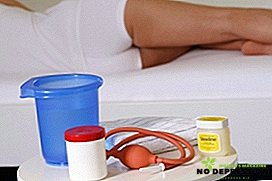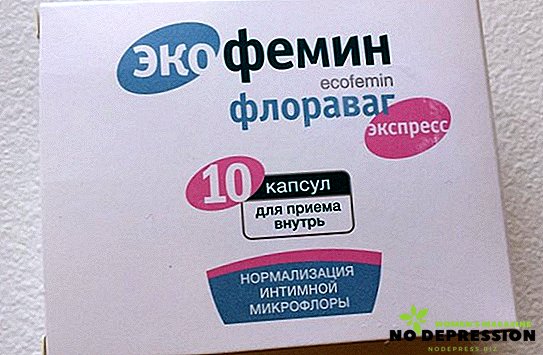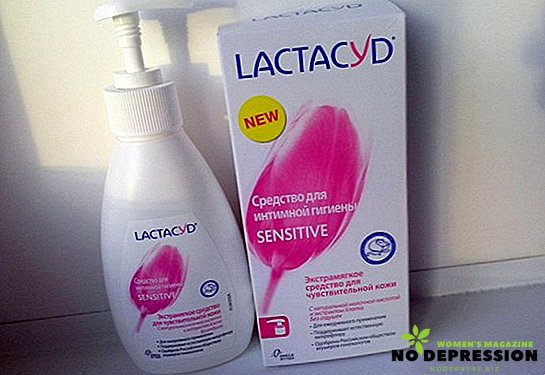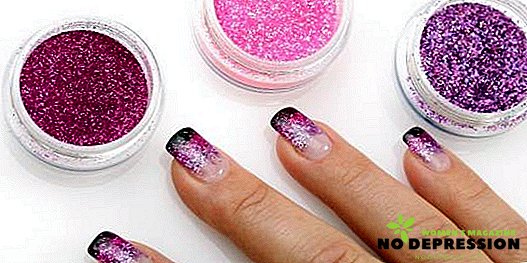Unpleasant smell from the intimate area is not always associated with poor hygiene. Often this is a sign of a disease that requires immediate treatment. In our material we will consider the factors of the emergence of such a "flavor", the possible causes and methods of treatment.

What factors can cause odor?
Natural microflora produces a secret with a specific smell, but it is not harsh, not repulsive. And the smell always appears with the discharge. To deal with such manifestations, you first need to understand why and for what reason it occurs.
The main factors include:
- Bad intimate hygiene.
- Inflammatory processes and infections.
Most often, this problem occurs in the case of the proliferation of bacteria and microorganisms, because of this, there is not only a smell, but also an unusual discharge. Moreover, it is difficult to fight with many vaginal infections, especially if they are chronic. That is why it is so important to start treatment in time so as not to risk your health.
There are the following causes of pathogenic microflora, which include:
 Changes in hormonal levels, for example due to pregnancy.
Changes in hormonal levels, for example due to pregnancy.- Long-term use of antibiotics.
- Conduct frequent douching.
- Unprotected intercourse.
- Hypothermia, which could lead to inflammation.
- Drinking a sick amount of alcohol, flour food, sweets.
- Infections caused by nerves and stress.
But there are also diseases that can cause an unpleasant smell.
Candidiasis
Another name is thrush. One of the most famous fungal diseases that is most common in pregnant women. The fungus multiplies very quickly, leading to discomfort, and candidiasis can not declare itself for a very long time. Manifested in the form of itching, burning, cheesy discharge, sour smell.
Even frequent hygiene does not help. The smell itself usually increases in the morning or after the end of the menstrual syndrome. And during sexual intercourse, a woman experiences discomfort, severe itching, redness appears.
Candidiasis, if you use medications, is successfully treated.
But in order to exclude other diseases, you still need to visit a gynecologist and get tested, after which the doctor will prescribe a suitable remedy, which can be sold in the form of tablets, ointments, suppositories.
Vaginosis
Previously, vaginosis was considered a consequence of the penetration of infections in the body, even carried out in a separate disease. However, today it is revealed that vaginosis is formed due to the intensive development of bacteria, which leads to disruption of normal microflora. Because of this, itching and discomfort appear.
Reasons include:
- sperm ingestion;
- frequent douching;
- frequent change of sexual partners;
- wearing uncomfortable clothes made of synthetics;
- endocrine diseases;
- reduced immunity.

Most often, the broken microflora begins to recover itself, but you can "help" it, using such pribiotiki as:
- Vagilak;
- Lactonorm;
- Laktozhinal
If a venereal disease or other infection is added to the bacterial vaginosis, complex treatment is carried out.
Venereal diseases
In the absence of timely treatment, the breakdown can be very serious: besides itching and smell, there can be abundant secretions of brown or green color.
Diseases such as syphilis or gonorrhea, if not promptly removed from them, can disrupt the reproductive system, but they also have a negative effect on the internal organs.
If there is an unpleasant smell, and torments, there are strange bluishness, you should seek help from a specialist - only after passing the tests, the doctor will be able to identify the causative agent and prescribe appropriate medications.
Menses
When bleeding in the female body, hormone production occurs, the inner uterine layer is rejected. If you take care of yourself incorrectly, do not provide sufficient hygiene, you can get an unpleasant smell.
In addition, it may increase in the first days of menstruation, if there is such a disease as endometriosis. To determine it is very simple: the discharge brown "dirty" shade, the smell is very persistent, which is not displayed even by douching. In this case, you need to visit a gynecologist, to undergo a thorough examination.
Colpit
Colpitis, or inflammation of the mucous membranes, is another reason. They cause colpitis, intestinal bacilli, microbes that cause both itching and "aroma".
Often this inflammation haunts pregnant women. It is for this reason that it is so important to consult a doctor in time and receive treatment at a very early stage in order to protect the child from infection.
What can be complications
The danger of non-current treatment is as follows:
- An existing infection can begin to rise higher, leading to cystitis or even chronic kidney disease.
- Many fungi can cause narrowing of the fallopian tubes, which in the future can lead to infertility.
- If infected at an early stage, the child may be born sick, and there is a high probability of miscarriage.
 In addition, the presence of such diseases can cause infection of amniotic fluid. As a result, during the birth of the child, the infection will get on the mucous membranes of the baby, which can cause the development of candidiasis or serious infections.
In addition, the presence of such diseases can cause infection of amniotic fluid. As a result, during the birth of the child, the infection will get on the mucous membranes of the baby, which can cause the development of candidiasis or serious infections.
Another frequent consequence of the mother’s illness is a deviation in the development of her child. In addition, the immunity of the baby is much worse, which affects its health.
That is why it is so important not to engage in self-treatment. Immediately, finding any signs, you need to go to the doctor for examination.
Diagnosis and further treatment
To diagnose, first take a swab, then do the sowing on the environment to identify certain microorganisms that led to the disease.
Another method is the determination of the pH level of the mucous membrane, since normally it should produce an acid reaction. But in the period of monthly this indicator is approaching a neutral indicator. In case of violation of the acid-base balance, the vital activity of beneficial bacteria is disrupted.
The method of treatment and appropriate medications are prescribed only after determining the cause. For example, if we talk about the violation of bacterial flora, then in this case antibiotics are prescribed. If the disease is parasitic, then antimicrobial drugs are usually prescribed. Fungal infections can only be killed with the help of antifungal medications.
After solving the problem, to avoid further infection, you need to undergo a course of probiotics. May be prescribed drugs that improve the immune system.
Symptomatic drugs
Regardless of the cause of the smell, it will help eliminate such drugs. Today, manufacturers of drugs and vitamins offer very effective products. But their reception will be justified only at the initial stage of the disease. To use such tools constantly on a regular basis is undesirable because they can adversely affect the microflora.
The most well-known tools include:
- Ecofemin, produced in the form of capsules, napkins or gel. This production leads to the normalization of microflora. When using this tool you can eliminate pathogens by increasing immunity. It is best to use the remedy for colpitis and vaginosis.

- Vagilak. Sold as a capsule or gel. The composition has lactobacilli that help in the fight against parasitic lesions. It should be used in the treatment of vaginosis or as a complex remedy with other diseases that cause an unpleasant odor.
- Lactacid It is used as a prophylactic with daily care.

- Epigenes. It is made on the basis of licorice root and helps to maintain the natural pH level. The remedy will not be able to cure the problem, but it will quickly deal with the symptoms.
Prevention Tips
If you regularly encounter an unpleasant smell, it is imperative to carry out prevention. The problem, most likely, is that your disease has assumed a chronic form - an aggravation occurs when you feel the "amber". To minimize the frequency of such manifestations, you need to follow simple rules:
- At least once a year, visit a gynecologist. Every six months - after menopause.
- Perform all medical prescriptions in time, complete the course of treatment.
- Watch your intimate hygiene.
- Use daily pads rarely, change them every three hours.
- Include in the diet of fermented milk with a high content of beneficial bacteria.
As soon as the first symptoms appear, which bother you: smell in the intimate area, redness, itching - you should immediately contact a gynecologist. The doctor will be able to prescribe the correct treatment.


 Changes in hormonal levels, for example due to pregnancy.
Changes in hormonal levels, for example due to pregnancy.











